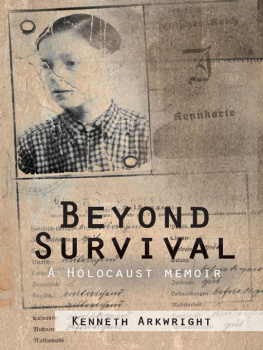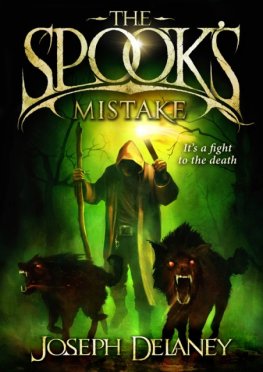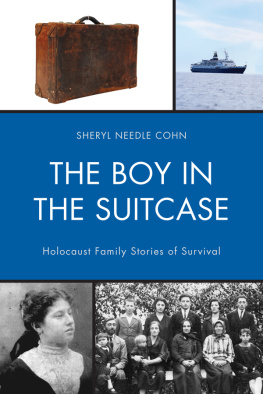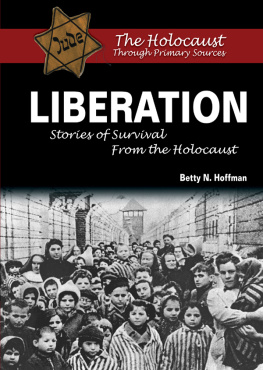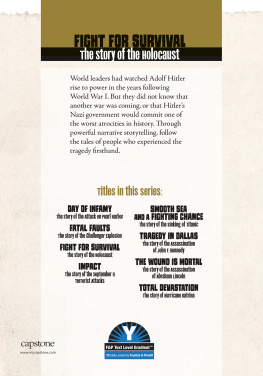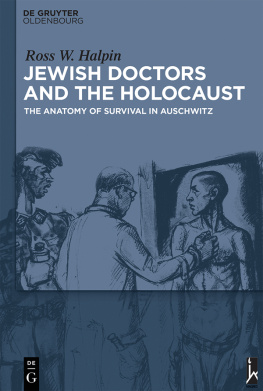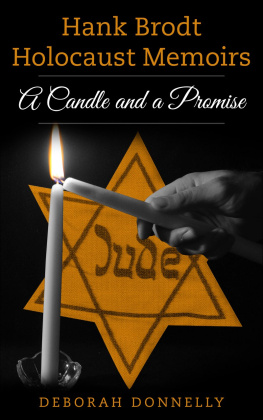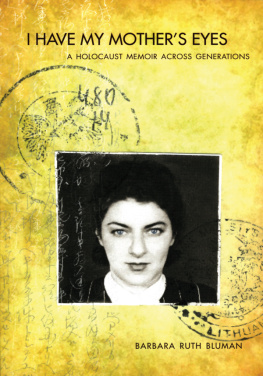Kenneth Arkwright - Beyond Survival: A Holocaust Memoir
Here you can read online Kenneth Arkwright - Beyond Survival: A Holocaust Memoir full text of the book (entire story) in english for free. Download pdf and epub, get meaning, cover and reviews about this ebook. year: 2018, publisher: Hybrid Publishers, genre: Home and family. Description of the work, (preface) as well as reviews are available. Best literature library LitArk.com created for fans of good reading and offers a wide selection of genres:
Romance novel
Science fiction
Adventure
Detective
Science
History
Home and family
Prose
Art
Politics
Computer
Non-fiction
Religion
Business
Children
Humor
Choose a favorite category and find really read worthwhile books. Enjoy immersion in the world of imagination, feel the emotions of the characters or learn something new for yourself, make an fascinating discovery.
- Book:Beyond Survival: A Holocaust Memoir
- Author:
- Publisher:Hybrid Publishers
- Genre:
- Year:2018
- Rating:4 / 5
- Favourites:Add to favourites
- Your mark:
- 80
- 1
- 2
- 3
- 4
- 5
Beyond Survival: A Holocaust Memoir: summary, description and annotation
We offer to read an annotation, description, summary or preface (depends on what the author of the book "Beyond Survival: A Holocaust Memoir" wrote himself). If you haven't found the necessary information about the book — write in the comments, we will try to find it.
Beyond Survival: A Holocaust Memoir — read online for free the complete book (whole text) full work
Below is the text of the book, divided by pages. System saving the place of the last page read, allows you to conveniently read the book "Beyond Survival: A Holocaust Memoir" online for free, without having to search again every time where you left off. Put a bookmark, and you can go to the page where you finished reading at any time.
Font size:
Interval:
Bookmark:
The world is a tragedy to those who feel, but a comedy to those who think. Horace Walpole (1717-97)
BEYOND
SURVIVAL
A HOLOCAUST MEMOIR
KENNETH ARKWRIGHT

Published by Hybrid Publishers
Melbourne Victoria Australia
Ken Arkwright
This publication is copyright. Apart from any use
as permitted under the Copyright Act 1968, no part may be reproduced by
any process without prior written permission from the publisher. Requests and
inquiries concerning reproduction should be addressed to the
publisher, Hybrid Publishers, PO Box 52, Ormond, Victoria, Australia 3204.
www.hybridpublishers.com.au
First published 2018
ISBN 9781925272949
ebook 9781925283457
 | A catalogue record for this book is available from the National Library of Australia |
Cover design by Art on Order
All photographs and documents courtesy of the author Ken Arkwright unless otherwise indicated.
Contents
I am a Jew. Between 1933 and 1945 I lived in Germany, the country of my birth, with the many who perished and with the few who survived the Holocaust.
It did not occur to me at that time, that one day the daily battle for survival would lead me towards the inevitable end of my life. As every day passes, there is more of the past to remember and less of the future to anticipate.
I have learnt that life is a journey. Its fulfilment cannot be found in some high place on the way, but in having made this journey from childhood to old age.
I have no regrets, harbour no hate, claim no privilege, but I feel a deep gratitude for every single moment of my life and for every human encounter along the way.
My friends and my enemies, the light of day, and the hours of darkness, have guided me along this path. To them I owe the knowledge that the purpose of life cannot be found beyond survival, but in sharing the lessons learnt along this road with my fellow travellers.
Many years of reflecting on these events had to take place to make me feel the need to write about this journey. May the world of yesterday give courage and hope to all who are building the world of tomorrow!

Ken Arkwright during an interview about the Holocaust in a series
of interviews: Sprechen trotz allem Voices of Survival.
Photo: Stiftung Denkmal fr die ermordeten Juden Europas
Life is like riding a bicycle. To keep your balance, you must keep moving. Albert Einstein (1879-1955)
I arrived in this world in the (then) German city of Breslau on Tuesday, 16 April 1929, at 1.45 am. I must already have been swollen-headed, as Ms Weinhausen, my mothers midwife, had difficulties in helping me progress from the relative safety of my mothers womb into a world that was rapidly sliding into economic depression, mass unemployment and political extremism.
Ms Weinhausen had to enlist the assistance of Dr Lili Berg-Platau, my mothers obstetrician. Dr Berg-Platau was a friend of our family. She left Germany shortly after my arrival to live in Palestine. She and her family were committed Zionists, a world view that was considered misguided by most of our family and friends. At that time, we felt completely at home in our German fatherland.
Lilis close friends at the Breslau Friedrich Wilhelm University were Erna and Edith Stein. Erna Stein acquired Lilis medical practice after Lili had emigrated to Palestine. Edith Stein left Judaism and became a nun, which did not save her from being gassed in Auschwitz. The Catholic Church did little to highlight Hitlers crimes in the world, other than making Edith Stein a saint called St Teresa Benedicta of the Cross.
On Tuesday, 23 April 1929, at 10.30 am, Dr Schlesinger introduced me into the Covenant of Abraham through the rite of circumcision. I was told that it was a great occasion for our family. To be frank, I cannot remember a thing about it! My fathers cousins, Alfred Redlich and Fritz Ritter, were my godfathers. Who could have guessed at that time that Alfred, his wife Kthe and their son Walter would be deported to Kaunas-Lithuania on 25 November 1941. There the 693 men, 1,155 women and 152 children of this transport had to dig their graves and then were shot on 29 November, a mere 72 hours after leaving Breslau. Fritz Ritter died in Breslau, but his wife Elli Ritter was gassed in Auschwitz in 1944.

Alfred, Kthe (16) and Walter Redlich (9).
The first four years of my` life were perfectly normal and happy, although they coincided with the dying years of the Weimar Republic. Democratic Germany was fighting a losing battle against its most serious opponent, the National Socialist German Workers Party led by Adolf Hitler.
Two months after my birth, my mother returned to work in my fathers business. My grandparents supervised my upbringing and showered me with great love and affection. Occasional corrective action by my parents was required. The polarity between the gentleness of my grandparents and the disciplinarian approach of my parents did not cause any confusion in my mind. It was perceived by me as two different manifestations of loving care and attention.
Life started in earnest after my third birthday. On 1 October 1932 I joined a small private Montessori kindergarten, located in a palatial apartment building, in Kaiser Wilhelm Strasse. It was managed by Dr Kthe (Catherine) Stern (1894-1973), a scientist who later became a researcher in childrens education. Being of Jewish origin, she had to emigrate in 1938 to the USA.
In kindergarten we were given the opportunity to select one toy at a time, and were not allowed to exchange this toy for another for one long hour. We had to abandon the toy after the hour had elapsed. Every one of us had our own pot plant to care for. The twenty plants stood side by side on a flower bench with our name tag attached to it. There was no replacement for plants that had died through neglect. A flowerpot containing a dead plant standing next to another that flourished, told the story. No further praise or chastisement was required. We had to observe a quiet hour during which no one was allowed to speak.
Only one piece of paper and coloured pencils were given to each child. This made us think before putting marks on the paper. All this was designed to make us thoughtful, considerate, and to appreciate an orderly world. The daily reports about my conduct still exist, and they gave me an insight into the formation of my thought processes and attitudes.
Every afternoon my nanny, Lotte Abraham, a trained kindergarten teacher, played with me and took me for outings to the nearby Kaiser Wilhelm Platz. The one-to-one relationship with Lotte, in contrast to the group environment in the kindergarten, made me appreciate the uniqueness and kindness of every human soul. I revisited Breslau (which reverted to Poland after the war and was renamed Wrocaw) in 1997 and found the Kaiser Wilhelm Platz had changed its name to Plac Powstacw lskich. The sand patch in which Lotte played with me is still there, but her life was terminated in the gas chambers of Auschwitz.
My three kindergarten years (1932-35) introduced me to a world worth striving for, and they also taught me to distinguish between right and wrong. Meanwhile, however, the real world around me was moving in the opposite direction.
Next pageFont size:
Interval:
Bookmark:
Similar books «Beyond Survival: A Holocaust Memoir»
Look at similar books to Beyond Survival: A Holocaust Memoir. We have selected literature similar in name and meaning in the hope of providing readers with more options to find new, interesting, not yet read works.
Discussion, reviews of the book Beyond Survival: A Holocaust Memoir and just readers' own opinions. Leave your comments, write what you think about the work, its meaning or the main characters. Specify what exactly you liked and what you didn't like, and why you think so.

